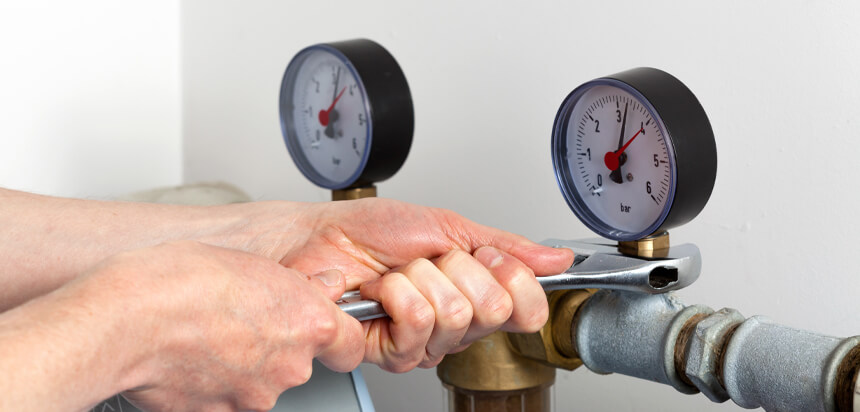
You’ve had the same water softener for many years and it has provided you with reliable access to clean drinking water. Your water softener has always done a good job at removing hard minerals from your water supply and preventing a lot of buildup in your home plumbing system. However, your water softener is no longer effective as it once was. Your unit is processing a lot more salt than it did before, and it’s requiring more repair work and maintenance.
Now you’re tasked with having to decide if you need to replace it outright. You should know that replacements are not cheap, and you should avoid this if you can. You will need to identify some of the key indicators that can determine if replacing your water softener is your only option. In many situations, simple maintenance or repairs can resolve the issue. However, a more up-to-date system might be the right choice in accommodating all of your water softening needs.
Symptoms of Hard Water
The presence of hard water is one of the tell-tale signs that there could be something wrong with your water softener. Changes in the taste of your tap water and a notable buildup of limescale in your faucets are among the more recognizable signs of hard water. Additional symptoms of hard water include:
- Soap isn’t lathering when you go to wash your hands
- Your clothes are dingy and they feel uncomfortable when you wear them
- Your water is leaving behind streaks on your dishes and silverware
- Your hair feels extremely dry and your skin is itchy and irritated
- There is a notable buildup of soap scum in the drain of your bathtub
You should always try out a few simple maintenance procedures to see if that limits the presence of hard water. We recommend that you check to see if your water softener is low on salt, clean and scrub your brine tank, and eliminate any salt bridges that form in the brine tank.
Should I Replace My Water Softener?
Water softeners, like most other devices in your home, will only last so long if you are not taking proper care of them. Regular repairs and maintenance will extend the lifespan of your water softener by up to 15 years. However, there are several hints you should keep an eye on indicating that it’s time for a replacement. They include:
- Sand-like particles that appear inside your water supply
- Your water softener isn’t sufficiently regenerating (or it’s over-regenerating)
- There are noticeable changes in water pressure
- Your water softener is constantly running
Updating Your System
Sometimes it’s your living situation that will determine if you need to replace your water softener. If you live in a home with four or more people living there, then this will greatly increase the demand that you place on your water softener. Your water softener must be able to account for the needs of your entire family, which is typically determined by the number of people living in a single household. If you don’t replace your outdated water softener, then you could end up spending a lot more money on utility bills and the salt that’s required to remove all the hard minerals from your water supply.
A newer and more up-to-date system can do a lot of good and, in many cases, it’s a better option for you and your family. The water softeners that are available today are much more advanced and they require a lot less water to operate. Newer systems also offer a much faster regeneration period and they will create a lot less waste. Modern water softeners have also proven to produce better-tasting water.
Also, depending on where you live, a system that is more up-to-date is a necessity. The hardness of your water is often determined by the source; any groundwater supply that enters your home will contain a higher concentration of minerals (typically hardness is measured by the presence of calcium and magnesium).
Getting Set Up
It’s in your best interest to install a system that will provide you the most value for the money that you spend. It can be challenging to determine the kind of water softener that is right for you. We advise that you consult with a professional on your best options moving forward. They can assess your current situation and offer you recommendations based on your needs. This is the best path that you can take in setting yourself up with a system that makes the most sense for you and your family.
Have any questions? Give us a call today! One of our team members can explain in greater detail the benefits of installing a new water softener and what the process entails.
